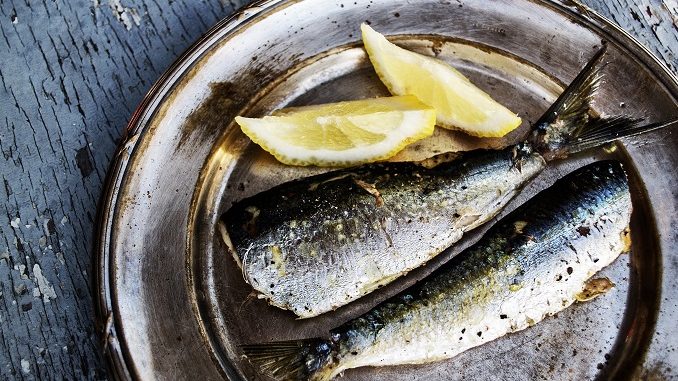
The MIND diet aims to promote brain health and has been associated with slower cognitive decline and with decreased risk of developing Alzheimer’s disease. But what about Parkinson’s? Is there a potential place for the MIND diet and could following this pattern of eating improve your Parkinson’s symptoms and quality of life? Before looking at this dietary pattern, let’s first take a closer look at the evidence.
The MIND diet was developed by Martha Clare Morris, PhD, a nutritional epidemiologist, and her colleagues at Rush and Harvard University. This dietary pattern is a hybrid of the Mediterranean and DASH (Dietary Approaches to Stop Hypertension) diets, both of which have heart healthy benefits. Foods from both diets that have been shown to benefit brain health in previous research are included. In case you were wondering, MIND stands for the Mediterranean-DASH Intervention for Neurodegenerative Delay.
What does the evidence say about the MIND diet?
Cognition
A study published in 2015 that followed participants for an average of 4.7 years, found the MIND diet was strongly associated with slower cognitive decline. Older adults who adhered to the diet the most showed an equivalent of being 7.5 years younger cognitively than those who followed the diet least. In this study the MIND diet had greater estimated effects than either the Mediterranean diet or the DASH diet.
Several additional studies published between 2017 and 2019 have also shown protective associations of the MIND diet on cognition. Only one study published in 2018 showed no association between the diet and cognitive decline in US older nurses.
Alzheimer’s disease
Following the MIND diet has been shown to offer protection against the development of Alzheimer’s disease. A study published in 2015, that followed participants for an average of 4.5 years, found older adults who followed the MIND diet rigorously had a 53% lower risk of Alzheimer’s disease. Researchers also observed a 35% lower risk when the diet was only moderately followed. In this study both the MIND and Mediterranean diets had comparable risks for Alzheimer’s disease but only the MIND diet was associated with lower risk when moderately followed.
Disability
A study of older adults published in 2018 investigated the associations of the MIND, Mediterranean, and DASH diets with self-reported disability of participants who were followed for an average of 5.3 years. The study found moderate or high adherence to the MIND diet was associated with decreased risk of disability, whereas only high adherence to the Mediterranean and DASH diets resulted in significant reductions in disability.
Parkinson’s disease
A cross-sectional study published in 2021 sought to examine the relationship between MIND diet adherence and age of Parkinson’s onset. In this study food frequency questionnaires from 167 participants with Parkinson’s and 119 healthy controls were scored for MIND and Mediterranean diet adherence. Higher adherence to the MIND diet was significantly associated with a higher age at disease onset, especially in women. Female participants adhered significantly closer to the MIND diet than did male participants. Researchers noted this tendency for women to adhere more strongly may contribute to their lower rate of Parkinson’s incidence.
An earlier study published in 2018 examined the relationship of the MIND, Mediterranean, and DASH diets with the development of parkinsonism in older adults. 706 older adults participated in this study which involved annual assessments for the presence of four parkinsonian signs (bradykinesia, parkinsonian gait, rigidity and tremors). For those who developed parkinsonism, progression was assessed by change in a global parkinsonian score. Participants were followed for an average of 4.6 years.
Results of this study found higher adherence to the MIND diet was significantly associated with lower rates of developing parkinsonism, and with slower progression of parkinsonian signs. More moderate protective associations were observed for the Mediterranean diet but not for the DASH diet.
What foods should I eat or limit/avoid?
The MIND diet has 15 dietary components, including 10 brain-healthy food groups which should be consumed. Regular consumption of berries and green leafy vegetables are two specified food groups that are incorporated into this dietary pattern.
10 brain-healthy food groups
- Green leafy vegetables – eat at least 1 serving per day e.g. Spinach, Kale, Bok Choy, Collard greens, Romaine lettuce, Rocket, Endive.
- Other vegetables – eat at least 1 serving of another vegetable per day.
- Berries – eat 2 or more servings per week e.g. blueberries, strawberries, blackberries, raspberries.
- Nuts – eat 5 or more servings per week.
- Whole grains – eat 3 or more servings per day e.g. wholegrain bread, brown rice, wholemeal pasta, oats.
- Fish – eat 1 or more servings per week e.g. fatty fish high in omega 3 such as Salmon and Sardines. Avoid fried fish.
- Beans – eat 3 or more servings per week e.g. Black beans, Cannellini beans, Lima beans, Red kidney beans.
- Poultry – eat 2 or more servings per week e.g. chicken or turkey. Avoid fried poultry.
- Olive oil – use olive oil as your main cooking oil. Choose extra virgin olive oil.
- Wine – no more than 1 standard drink per day e.g. red wine. Always talk to your doctor if drinking alcohol is appropriate for you.
For more detailed information about the 10 brain-healthy foods click here.
The diet also includes 5 unhealthy food groups which should be limited due to their high saturated and trans fat content.
5 unhealthy food groups
- Butter and stick margarine
- Cheese
- Red meat
- Fried or fast food
- Pastries and sweets
For more detailed information about the 5 unhealthy food groups click here.
Final thoughts
The MIND diet has 15 dietary components, including 10 brain-healthy food groups to eat regularly and 5 unhealthy food groups to limit or avoid. This pattern of eating has been associated with protection against cognitive decline, reduced risk of disability and Alzheimer’s disease and more recently lower rates of developing parkinsonism and slower progression of parkinsonian signs. Several studies on the MIND diet have shown benefit when the diet was only moderately followed.
In the meantime, with its emphasis on nutrient-dense, plant-based foods and limit on saturated fat intake, the MIND diet is a reasonable approach that is easy to follow for people with Parkinson’s.
Want to learn more?
From the creator of the MIND diet and author of Diet for the MIND, The Official MIND diet is a practical, day-by-day guide to improving your brain health for life by adjusting what you eat. You’ll learn:
- What foods to eat and limit to protect your brain from cognitive decline – with more than 60 recipes.
- How to seamlessly incorporate these foods into your routine.
- How to effectively stay on track and maintain your health and nutrition needs.

Article last updated September 2021
Sources
-
Morris MC, Tangney CC, Wang Y, et al., MIND diet slows cognitive decline with aging. Alzheimers Dement 2015;11:1015–1022.
-
McEvoy, C. T., Guyer, H., Langa, K. M., & Yaffe, K. (2017). Neuroprotective Diets Are Associated with Better Cognitive Function: The Health and Retirement Study. Journal of the American Geriatrics Society, 65(8), 1857–1862.
-
Shakersain, B., Rizzuto, D., Larsson, S. C., Faxén-Irving, G., Fratiglioni, L., & Xu, W. L. (2018). The Nordic Prudent Diet Reduces Risk of Cognitive Decline in the Swedish Older Adults: A Population-Based Cohort Study. Nutrients, 10(2), 229.
-
Hosking DE., Eramudugolla , Cherbuin N., Anstey KJ., MIND not Mediterranean diet related to 12-year incidence of cognitive impairment in an Australian longitudinal cohort study, Alzheimer’s & Dementia, Volume 15, Issue 4, April 2019, p. 581-589
-
Cherian, L., Wang, Y., Fakuda, K. et al. Mediterranean-Dash Intervention for Neurodegenerative Delay (MIND) Diet Slows Cognitive Decline After Stroke. J Prev Alzheimers Dis 6, 267–273 (2019).
-
Berendsen AM, Kang JH, Feskens EJM, de Groot CPGM, Grodstein F, van de Rest O. Association of long-term adherence to the MIND diet with cognitive function and cognitive decline in American women. J Nutr Health Aging. 2018;22:222–9.
-
Morris MC, Tangney CC, Wang Y, Sacks FM, Bennett DA, Aggarwal NT. MIND diet associated with reduced incidence of Alzheimer’s disease. Alzheimer’s Dement. 2015;11:1007–14
-
Agarwal, P., Wang, Y., Buchman, A. S., Bennett, D. A., & Morris, M. C. (2019). Dietary Patterns and Self-reported Incident Disability in Older Adults. The journals of gerontology. Series A, Biological sciences and medical sciences, 74(8), 1331–1337.
-
Metcalfe-Roach A., Yu AC., et al, MIND and Mediterranean Diets Associated with Later Onset of Parkinson’s Disease, Movement Disorders Volume36, Issue4, Pages 977-984, April 2021.
-
Agarwal, P., Wang, Y., Buchman, A.S. et al. MIND Diet Associated with Reduced Incidence and Delayed Progression of Parkinsonism in Old Age. J Nutr Health Aging 22, 1211–1215 (2018).
-
Pearson K., The MIND Diet: A Detailed Guide for Beginners, Healthline, July 2017.
Parkinson Diet – Terms & conditions / Privacy policy



